Top 15 Foods to Reduce Inflammation
Got inflammation? Don’t we all… It’s caused by all kinds of things, some unavoidable, but these foods to reduce inflammation will certainly help!
While it comes from many different sources, we do get inflammation for a very specific reason. It’s our faithful friend that lets us know when we’ve been injured or partied a little too hard.
Inflammation sends pain and extra blood flow to the places in our body that it thinks are injured and need help, like when we stub a toe or eat something bad.
Its intentions are good.
When inflammation gets out of control, though, it can cause some serious issues, including…
- Weight gain
- Chronic pain
- Digestive orders
- Autoimmune diseases
- And even cancer…
Our horrific, modern-day, convenience diets also don’t help one bit.
Fried foods, sugar, and artificial additives can send our bodies into a tailspin of chronic inflammation that’s difficult to pull out of.
Eating certain foods will certainly help the situation. Fit these 15 foods to reduce inflammation in your diet to stop inflammation in its tracks.
This post may contain affiliate links, which helps keep this content free. Please read our disclosure for more info.
1. Pineapple
Pineapple isn’t just a tasty garnish for your piña colada or a questionable pizza topping. It’s got a powerful enzyme called bromelain in it, which has tons of health benefits.
Studies have shown that it stops blood platelets from building up along blood vessel walls, which can cause heart attacks and strokes. It also helps the body digest proteins so that it can absorb nutrients better.
If you get inflammation after exercising, nosh on a few chunks of pineapple. It eases muscle soreness because of its high levels of potassium.
2. Coconut Oil
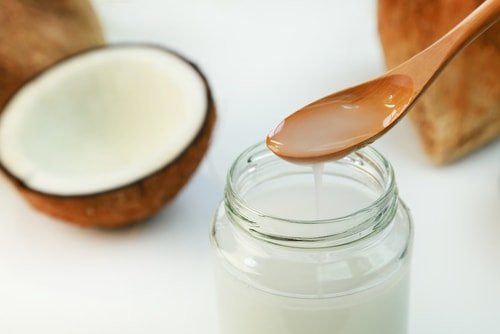
Many conditions that cause inflammation are a result of poor gut health. Coconut oil helps the gut absorb nutrients and fight against bacteria and parasites that cause indigestion.
It’s also amazing to use on the skin because it fights infection when used topically. Not only has it been used for thousands of years to moisturize flaky lizard skin, but it treats conditions like psoriasis and dermatitis.
Lastly, coconut oil can also be a useful tool that aids in weight loss when used properly!
3. Blueberries
Blueberries have quercetin, a flavonoid that fights inflammation and even cancer. Flavonoids are antioxidants which turn off inflammatory and immune genes.
Another great thing about blueberries is that they improve your memory and cognitive function, so if you have trouble remembering things, they’re a yummy way to make you a little bit smarter.
4. Swiss Chard
You often find Swiss chard in salad mixes. Spinach and kale are more well-known, but swiss chard is as powerful a leafy green as the rest of them.
It’s loaded with antioxidants that help fight free radicals and flavonoids that reduce allergic reactions.
Swiss chard also has a lot of potassium in it, so if you’re prone to muscle soreness or you get wicked foot cramps from gripping your flip flops too tightly or ill-fitting high heels, add it to your diet.
5. Bone Broth
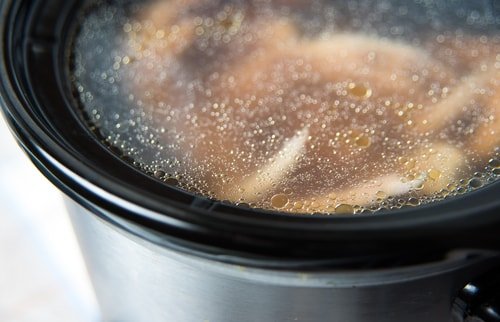
Bone broth is not a faddish lifestyle choice for no reason. It’s a powerful anti-inflammatory that supports the immune system.
It might gross you out to hear that bone broth is exactly what it sounds like-bones boiled in water-but the very thing that makes it creepy is what makes it so good for you.
It’s got healing compounds like glutamine and collagen that help heal the lining of your gut and reduce intestinal inflammation.
6. Garlic
It’s really good for you, unless you’re a vampire, and there are plenty of studies to back that claim up. It’s smelly, but its inflammation-busting properties are legendary.
Crushed fresh garlic has allicin in it, which is an antiviral, fights bad bacteria, and antifungal. It can treat everything from ringworm to staph infections.
Garlic supplements are a great way to get enough of it if you don’t want to smell like an Italian restaurant all day long. Not that there’s anything wrong with that.
7. Spinach
Popeye got it right when he believed that eating a lot of spinach kept him healthy. It has just about every anti-inflammatory in it that you can think of, including vitamins E, C, and K.
It radically reduces inflammatory markers in the blood and helps neutralize free radicals. Spinach also helps plump up the immune system, the body’s natural defense system.
You won’t get big forearms if you eat it, promise.
A great way to get more into your diet is to add it to simple green smoothies!
8. Wild Salmon
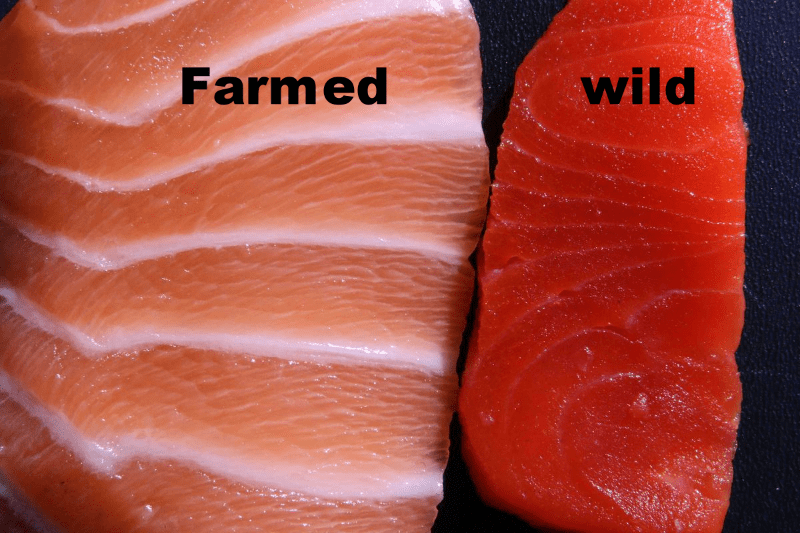
Speaking of healthy fats, wild salmon is loaded with omega-3, a fatty acid that our body can’t make on its own.
Omega-3 fats have been shown to help prevent heart disease, stroke, control lupus, eczema, rheumatoid arthritis, and many other diseases that are caused by inflammation.
Why wild salmon instead of farm-raised? Researchers believe that wild salmon get their omega-3 from eating algae. Unfortunately, most farmed raised salmon are fed fish meal, so they have less omega-3 than their wild cousins.
9. Olive Oil
There is such a thing as good fat, and extra virgin olive oil has it. It’s a big part of Mediterranean diets, which are known to fight inflammation.
Extra virgin olive oil has a special compound that no other foods are known to have called oleocanthal. It helps reduce joint inflammation and cartilage damage.
If you’re worried about using olive oil on your veggies, don’t be. It might be high in fat, but it’s monounsaturated, which promotes weight loss. Just don’t go too crazy with it, because it is still high in calories!
10. Black Beans
When black beans ferment in your belly, your healthy gut bacteria turns it into the fatty acid butyrate, which is a serious inflammation buster. They’re also loaded with antioxidants that help fight free radicals and regulate insulin.
Bloated belly people beware; black beans are high in fiber and some people can difficulty digesting them. If you find that you get gassy or bloated when you eat too much fiber, steer clear.
To make this a compliment sandwich, one last awesome benefit of black beans is that they are a great plant-based source of iron!
11. Beets
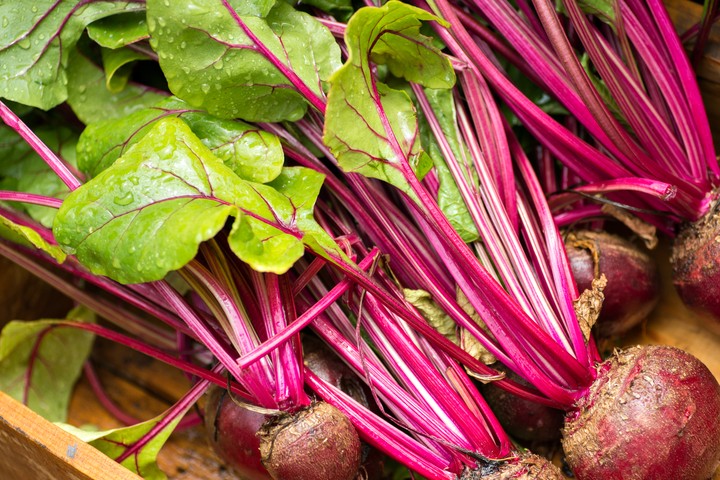
For some people who eat beets for the first time, it can be an alarming experience because it can turn your urine pink or red. Yikes! If you’re not expecting it, it can give you quite a scare.
The same thing that causes your toilet to look like a horror flick is what makes beets so healthy. The red pigment is called betalain and scares away inflammation almost as much as it scares you.
12. Turmeric
Ever crave Indian food? The spice used that turns some Indian dishes yellow is called turmeric, and it does way more than taste yummy.
What makes turmeric its lovely yellow color is curcumin, which is a powerful anti-inflammatory. Many studies show that it’s as good at getting rid of joint pain as over-the-counter medications like ibuprofen, without the nasty side-effects.
13. Dark Chocolate
It’s true that chocolate is really good for you, but don’t get too excited yet. It’s only a certain kind, and it’s not creamy and filled with processed sugar.
Dark chocolate, the kind that tastes a little bitter, has compounds that shut down the genes linked to inflammation and insulin resistance.
Look for cacao content of at least 70% in your next sweet treat because it will contain the highest amounts of healing antioxidants.
14. Green Tea
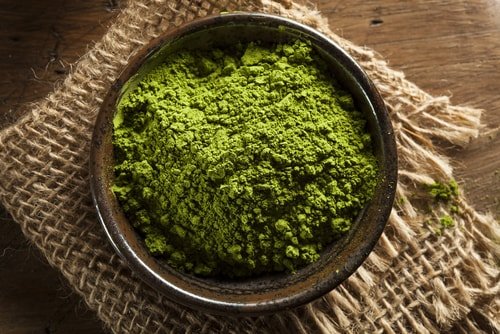
Green tea is a belly-flattening health miracle that’s been used for centuries as a cure-all. Like many inflammation busters, it’s loaded with antioxidants.
Numerous studies have found that it can prevent skin tumors and slow cancer growth. It significantly lowers the risk for getting a bunch of different types of cancer.
Green tea stops the production of many pro-inflammatory substances dead in their tracks. It’s a great bouncer.
Brew a cup of regular green tea, matcha green tea (even better), or take green tea extract to get these benefits.
15. Ginger
You know the sweet pile of pink that’s always right next to your sushi? It’s pickled baby ginger and is used to both cleanse your palate and aid digestion.
Just make sure that you buy some of the REAL stuff to get optimal benefits (it’s a white-yellow color, not dyed pink).
All ginger is great for pain relief, especially when you’ve got arthritis or gastrointestinal issues. It’s been scientifically proven to block enzymes in the body that produce inflammation.
P.S. Have you checked out our 21-Day Fat Loss Challenge yet? Not only is the diet plan full of foods that will help you reduce inflammation, but it will also help you lose 10-21 pounds in just 21 days!
Get started with YOUR 21-Day Fat Loss Challenge journey today!


Just read the article and am so glad that it gives the information right then and now. It didn’t keep teasing you that the ingredients obtained from far away will run out etc.ect. I will be starting this soon. The very recent loss of my husband has turned my life upside down. Once again
Thank you for this informative article
Thanks Lauren. This is a great list. Is there one in particular that is more powerful at inflammation reduction? A “best of the best” if you will?
I’ve recently been diagnosed with leaky gut and inflammation, so this list is pretty well what I am required to follow. Although with recent microbiome testing I need to omit FOS foods like garlic, onion, mushrooms etc. I was never a fan (or a great believer) in bone broth, but I am starting to see the light here. It is certainly a tasty addition to the week of meals!
Oh, and great stuff pointing out the difference between farmed and wild fish. Farmed fish is often fed soy and corn-derived feed – both of which are known to increase inflammation and can also lead to hormonal imbalances… Wild caught all the way!
Jason, that’s tough! These are all so great for you! My suggestion is to try them all and see what works best for you!
Hi Jason – I’ve just read this and think I might be able to help. I’m a registered nutritionist so I’m familiar with gut problems! If you’ve been told that you have a leaky gut then I’m presuming you’ve seen an alternative practitioner? It’s not a term used much by modern medicine – it suggests you might have symptoms of irritable bowel syndrome and indeed certain foods could be a trigger for you. How you deal with this will largely depend on your symptoms, and if you’ve been told you should avoid FOS foods, then I’m guessing that gas or bloating is a problem? If so, there is a wide range of foods that could be problematic, and you’d need to eliminate them one by one to find out which ones are the worst. Adding specific foods at this point will only confuse the issue, you need to find out which foods are problematic for you first and then think about how you’re going to “fix the gut” so to speak. Does that make sense? Think about seeing a dietitian or clinical nutritionist who’ll help you with a list of foods to stop eating and then reintroduce (you’ll never have to stop eating all foods forever). Good luck!.